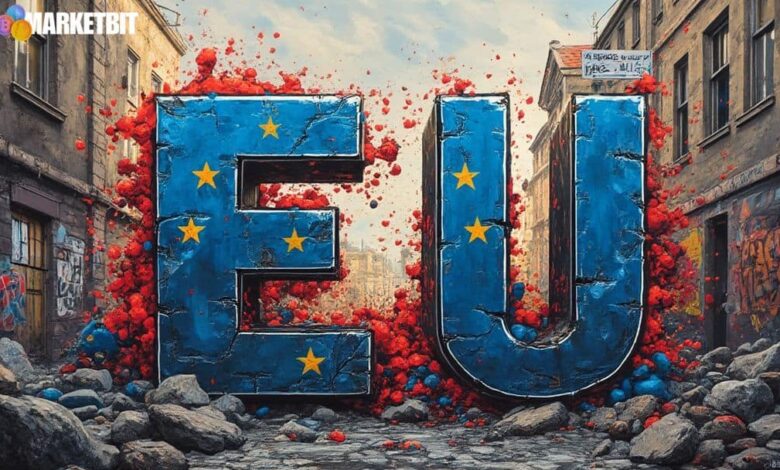EU Imposes 19th Sanctions Wave Targeting Russian Crypto Platforms

- EU targets Russian LNG, cryptocurrency platforms in new sanctions.
- Intensifying pressure on Moscow amid ongoing Ukraine conflict.
- Cryptocurrency exchanges to block Russian clients and report activity.
The European Union has announced a 19th sanctions package targeting Russia, including LNG and cryptocurrency platforms, following a statement by European Commission President Ursula von der Leyen on September 18, 2025.
The sanctions aim to close loopholes affecting energy and crypto sectors, impacting various cryptocurrencies and exchanges, with immediate market focus on potential trading volume declines and compliance challenges.
The European Union has announced its 19th sanctions package against Russia, extending measures to include LNG and cryptocurrency platforms. This move marks the first inclusion of crypto as part of the EU’s sanctions enforcement strategy.
Led by Ursula von der Leyen, the EU Commission targets crypto loopholes to restrict revenue streams. DG FISMA is overseeing the compliance on crypto regulations, though official statements from crypto exchanges remain absent. Von der Leyen noted in an official press statement, “This 19th package sends a clear message: We continue to intensify pressure on Russia until it ends its illegal war against Ukraine. By targeting LNG and cryptocurrency platforms, we close key loopholes and deprive the Kremlin of additional revenue streams.”
The sanctions require crypto exchanges to block Russian clients and track suspicious activities. This mandate impacts all major cryptocurrencies, with potential declines in ruble-related trades and increased crypto outflows to non-EU platforms.
Implications are financial, political, and business oriented, tightening AML/KYC protocols for Russian nationals. It comes after prior sanctions targeting specific blockchain protocols without an outright facilitation ban.
No historical on-chain analytics have been released post-announcement. Prior sanctions reflected a significant shift in trading volumes and DeFi platform engagement.
Potential regulatory outcomes include more stringent compliance checks for all EU-based crypto exchanges. Past sanctions waves shifted economic activity, demonstrating a trend of increased decentralized platform prevalence when centralized exchanges impose restrictive measures.




